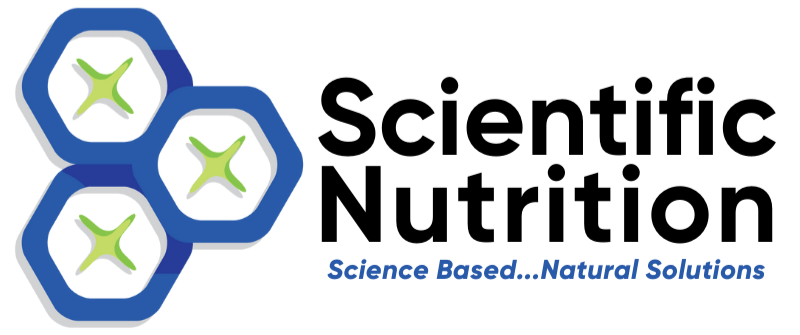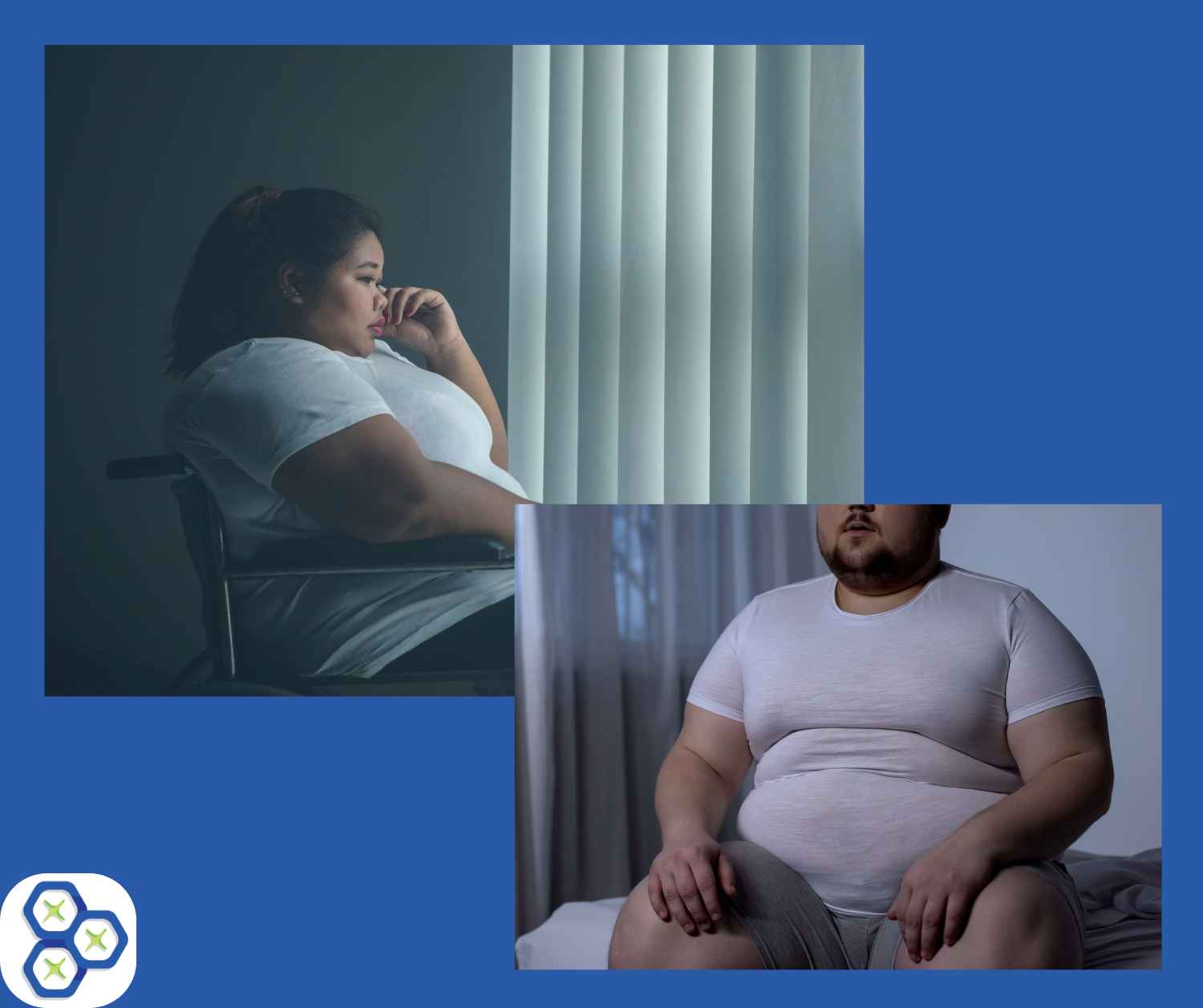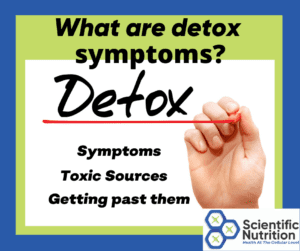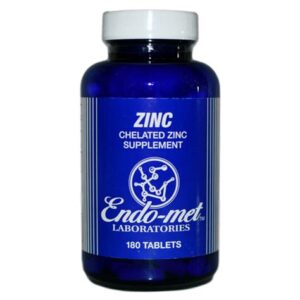Do you know why you may be struggling to lose weight?
Obesogens may be the culprit. More than 42% of Americans are considered obese, according to the Centers for Disease Control and Prevention. As you look at the food additives and exposures in our daily lives, it is easy to see why.
What are some reasons for not being able to lose weight?
So often we think it is a lack of exercise or too many calories is the key to losing weight but there are so many other reasons. Most commonly I see incorrect diets, heavy metals, and chemical toxicity. Here is a list to consider.
- Insomnia, sleep disorder, or poor sleep quality
.
- Hormonal imbalance – cortisol high due to inflammation, estrogen/testosterone, melatonin, high ghrelin, etc.
.
- Insulin resistance causes fat to accumulate and unstable blood sugars
.
- Anemia – iron or copper anemia
.
- Inconsistency, no goals set for Macros and not knowing what micronutrients or fats are needed with Hair Analysis, giving up with water weight gain needed to flush fat/toxins
.
- Obesogens are chemicals that cause weight gain
.
- Intermittent fasting extends into the early afternoon (no breakfast) instead of later in the day into the night
.
- Dehydration – nothing is ushering the fat out that contains toxins as well
.
- Cellular permeability is not there so nothing gets in or out easily
.
- Diet – nutrient deficient, low protein/fiber, bad fats, wrong dietary choices for metabolism rate, poor food quality, diet soda or foods
.
- Lack of exercise – the wrong kind, too much cardio, no weight resistance
.
- Too LOW of calories so the body is in starvation mode
.
- Lifestyle – stressed out, burned out
.
- Environmental toxicity – mold exposure, heavy metal toxicity
.
- Detoxification pathways are clogged or slow at best
Can you lose weight without counting calories?
It is not always a calorie in/calorie out issue as millions of people have done dozens of diets unsuccessfully or only to achieve temporary results. Often our body is not basing the release of fat on a mathematical equation. Physically it should always work but we need to factor in the WHOLE person.
Using your BMI (Body Mass Index) can be a guide but not the golden standard for what you should weigh. You may have a lot more muscle than the next person reflecting a higher BMI.
Overexercising increases Cortisol due to the inflammation it triggers which then stores fat. Even Olympians limit cardio to 45-50 minutes a session to avoid pushing the body to release excessive amounts.
If you are not healthy, your body is smart enough to know not to release fat that contains toxins or will be needed in case of starvation. Instead, it will catabolize or tear down muscle for an easier path to instant energy. This leaves you with less muscle which burns more calories resulting in a cycle of fat gain and muscle loss.
Obesogens may be the reason for weight gain or weight loss struggles!
Let’s follow the trail to how these chemicals affect our bodies. One of the processes that are messed with is your endocrine system. Some of the hormones affected include;
- aldosterone (inflammatory)
- corticosteroid (anti-inflammatory)
- anti-diuretic
- oxytocin
- growth hormone
- insulin
- FSH
- thyroid hormones (TSH)
- estrogen, testosterone, progesterone
- melatonin
- epinephrine
- norepinephrine and more
These hormones also control your metabolism (energy level), stress response, and reproduction. The inability to lose extra weight due to metabolic changes can cause obesity. Exposures to these endocrine disruptors stop the normal function of hormones in animals and humans[i].
How do toxic chemicals affect weight loss?
These toxic chemicals;
- Increase your fat cells. They may tell your body to make new fat cells that are unusually large allowing for more weight gain.
. - Change your appetites by affecting a part of your brain called the hypothalamus. It controls the appetite by blocking the signal that you are full. Studies on animals linked compulsive overeating beyond satiation and feeling hungry nonstop.
. - Blocking fat burning. Obesogens may inhibit fat from releasing to be used for energy. By inhibiting the fat burn your body may resist even if your diet and exercise are on point.
Types of Obesogens
Scientists have identified a variety of chemicals that might be classified as obesogens. Some are already prohibited because of the obvious health issues they cause. They can be found in places such as products, manufacturing byproducts, and in agricultural chemicals.
What types of chemicals to avoid:
- Alkylphenols are used as a thickener in many products including fragrances, paints, detergents, lubricants, fire-retardant materials, and rubber products. It also has links to breast cancer.
. - Organotins are fungicides that treat wood used as building materials, on crops, and food-packaging PVC.
. - Bisphenol A (BPA) is a chemical used in plastics to make them pliable. They can be found in common food and beverage containers (so switch to glass), baby bottles, can liners, and pacifiers (use natural rubber).
. - Phytoestrogens are in foods including chickpeas, tofu, soy milk, miso, soybeans, and lentils. They increase estrogen levels that can encourage or feed estrogen-based cancers.
. - Phthalates are plasticizing agents found in paints, soaps, vinyl flooring, hoses, medicines, and cosmetics.
. - Polycyclic aromatic hydrocarbons (PAHs) are air pollution byproducts occurring when certain types of fuel are burned or tobacco smoke.
. - Many medications have “side effects” warnings of weight gain due to their obesogenic ingredients. They can either cause weight gain or make it incredibly difficult to lose excess weight. Some common ones include antihistamines, antidepressants, and antipsychotics.
. - Polybrominated diphenyl ethers (PBDEs) are flame retardants in materials such as furniture fabrics, rugs, PCs, television cabinets, small appliances, and wire insulation.
. - Pesticides are mainly used in agricultural industries including herbicides, insecticides, and fungicides.
. - Parabens are preservatives in items such as food including beverages Shampoo, soaps, paper products, and pharmaceutical medications can have many forms too.
What can you do to lose weight?
Start with your nutrition, gentle exercise, and detoxification. As you can see there are many places in our daily lives where we are exposed to obesogens or toxins. You don’t need to feel defeated and give up.
Hair Analysis to help you lose weight
There ARE reasons weight loss isn’t happening beyond just counting calories! Cleansing internally as well as rebuilding with targeted food and supplements is key. Hair Analysis will map out your journey to the best health possible and a better quality of life, not to mention longevity.
Do you see a different approach to healthy weight loss? We need to look deeper to correct the problem from all aspects. Now is the time to detoxify all of the toxins holding you back from releasing unwanted pounds.
LET’S CHAT about your health goals!
[i] https://www.webmd.com/diet/obesity/what-to-know-obesogens
Copyright Scientiifc Nutrition, LLC 2023




